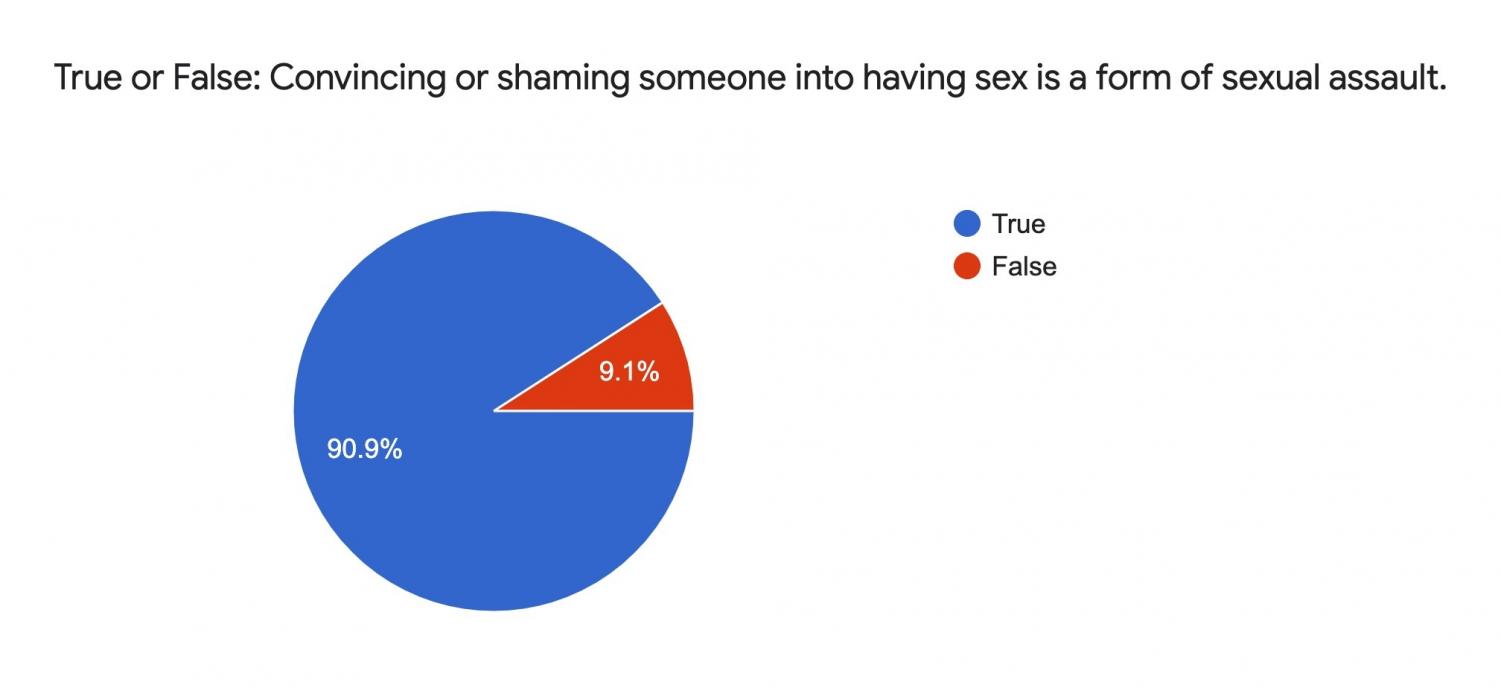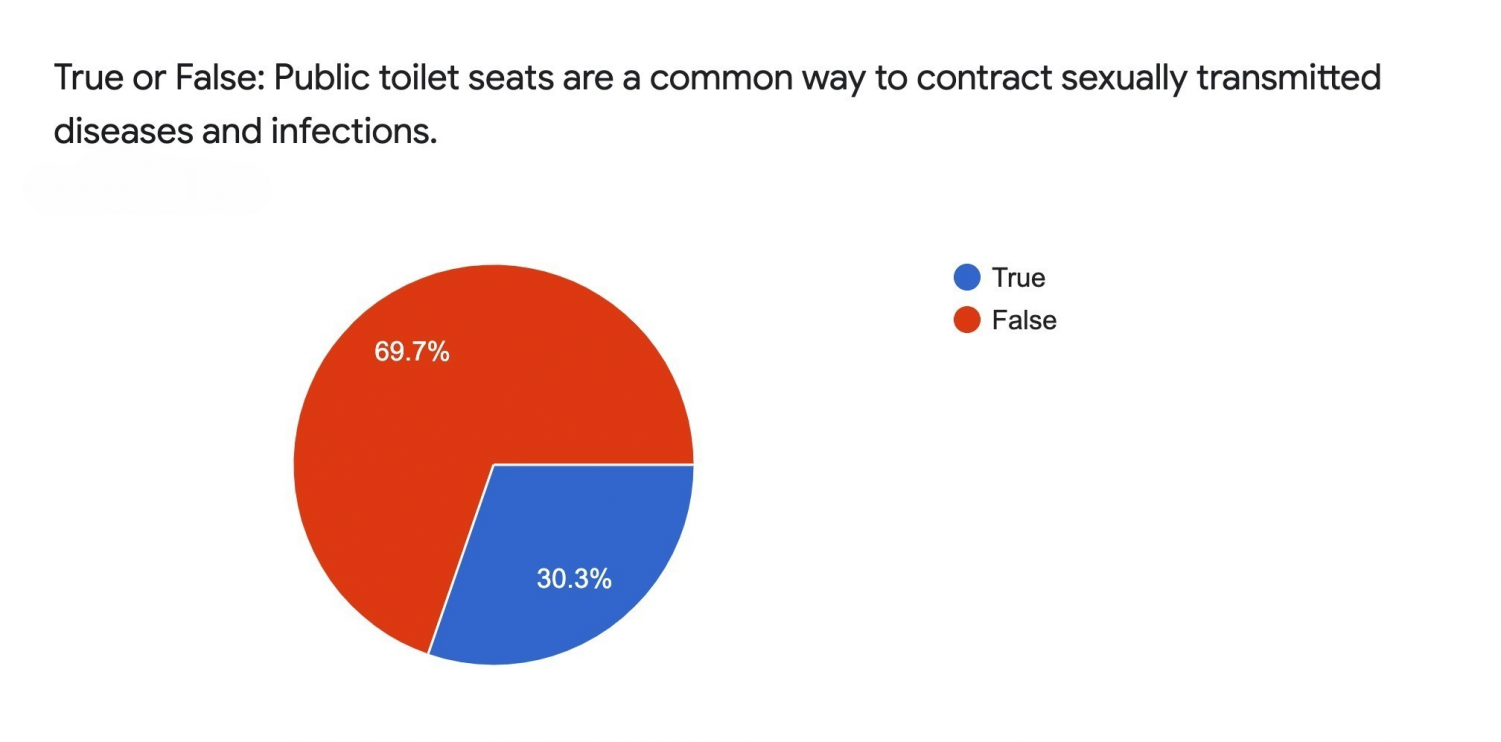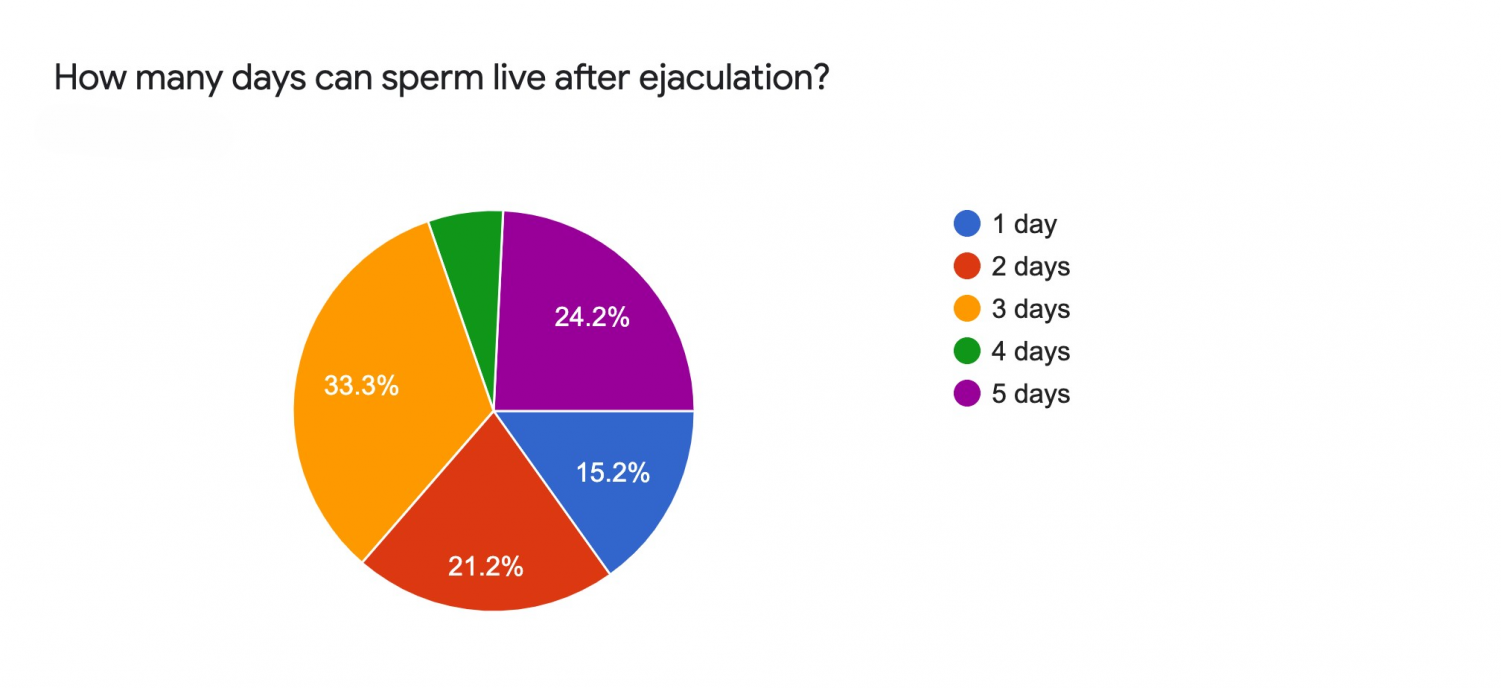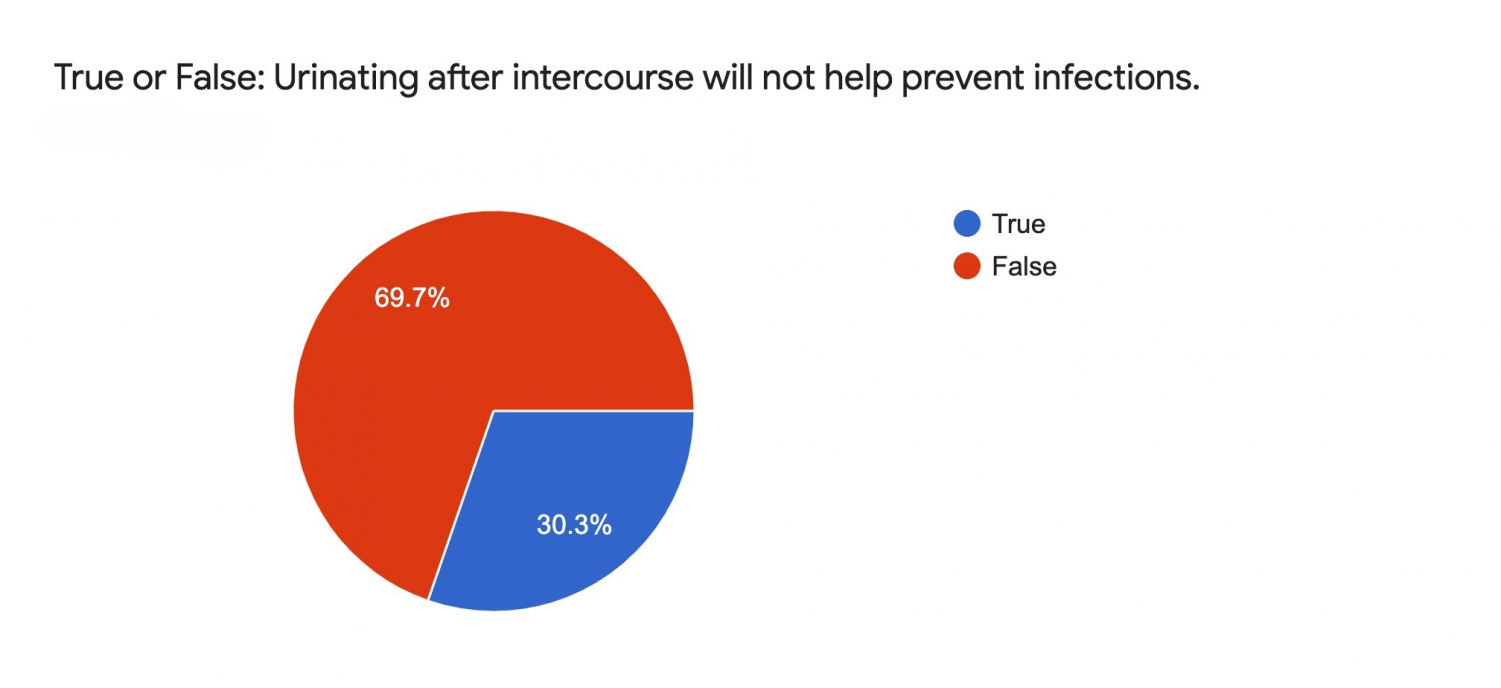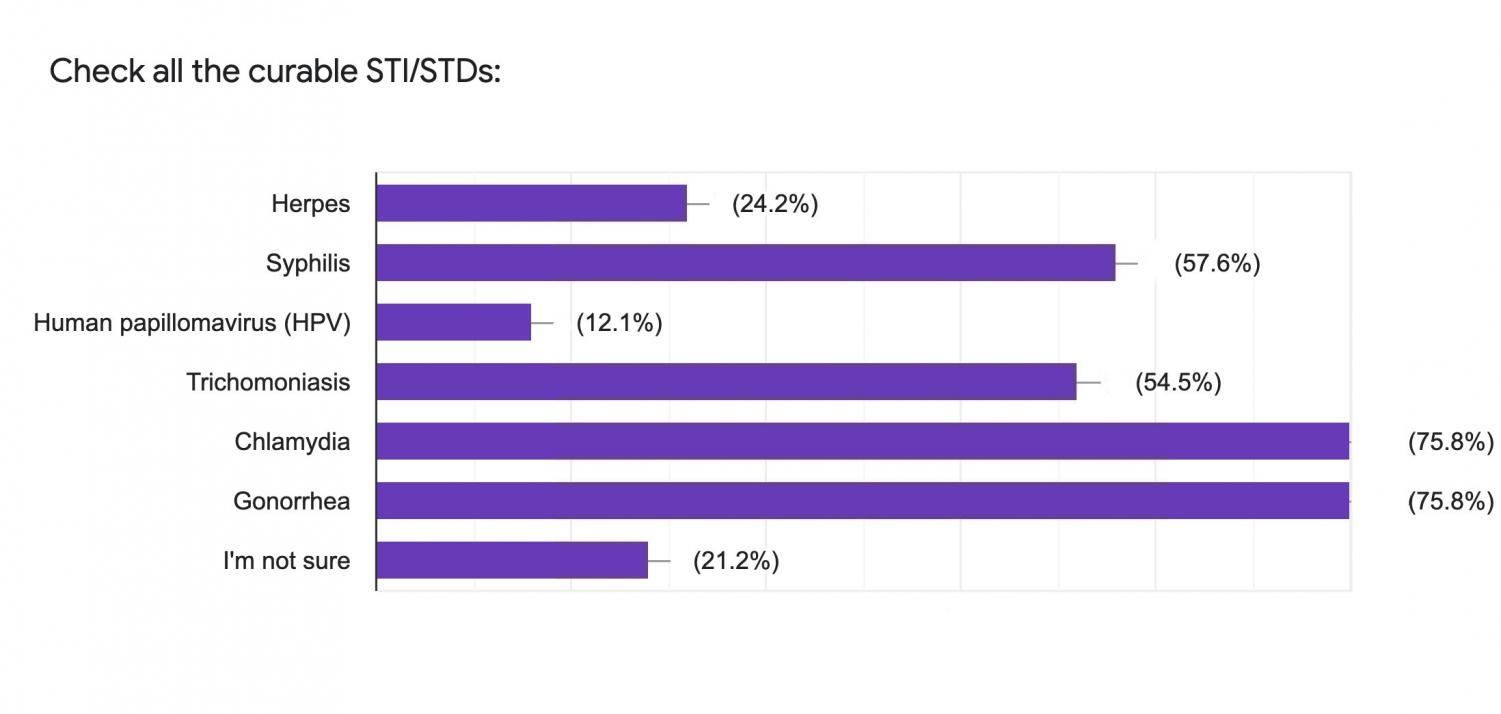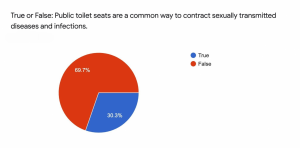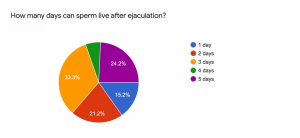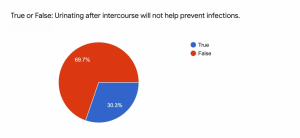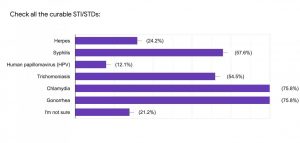Basic Sex-Ed is Common Knowledge, Right?
January 12, 2022
Maybe not.
Despite societal progressions, sexual health remains a taboo subject for many. The topic of sexual education is often treated as an afterthought, which does nothing but leave people in the dark about important information.
Students were called to put their knowledge to the test with a brief sexual health quiz. Let’s take look at a few responses.
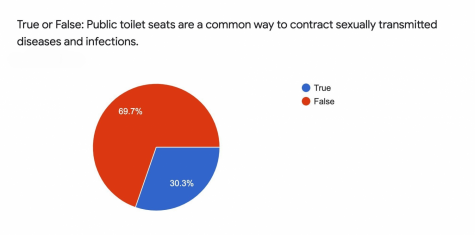
Correct Answer: FALSE
The belief that STIs and STDs can be caught from toilet seats is a popular misconception. Yes, it is possible, but there is a very small chance that it will happen because these organisms cannot live long on hard surfaces.
More than half of the participants answered correctly. Good job, fellow students!
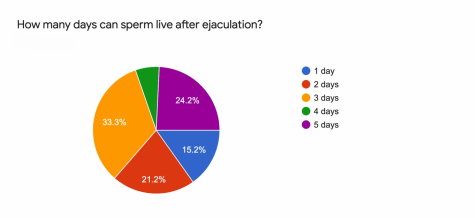
Correct Answer: Five days
Whew, the response was mixed on this one. Only 21.2% of students answered correctly. Sperm can live for up to five days in the body. This is why morning-after pills like Plan B are still 98% effective up to five days after unprotected sex.
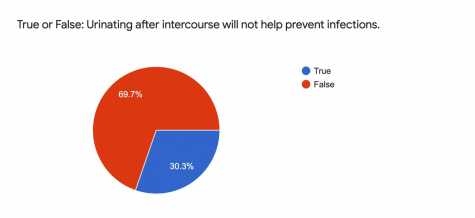
Correct Answer: True and False
Now, this might have been a little bit of a trick question. The specific type of infection in question was never stated. Peeing after sex is an effective way to flush out bacteria from the urethra and prevent bacterial infections like UTIs. However, it does not prevent the contraction of STIs or pregnancy.
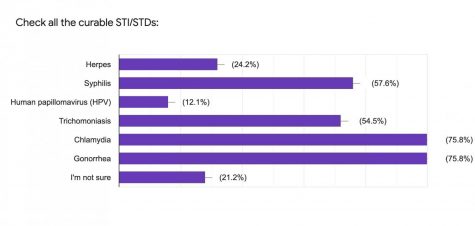
Correct Answer(s): Syphilis, Trichomoniasis, Chlamydia and Gonorrhea
Luckily, most students were able to correctly identify infections that were curable. While 21.2% honestly admitted that they weren’t sure. It’s a common misconception that herpes is curable, but that is not true. Herpes is treatable, but there currently is no solution to permanently remove herpes.
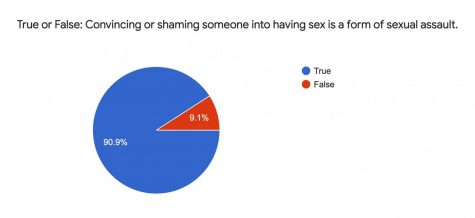
Correct Answer: True
90.9% of students answered correctly. Sexual assault not only includes nonconsensual sexual activity but unwanted sexual activity. If you have to ask repeatedly or berate someone into consent – that counts as assault.
The results collected from this quiz show that sexual health knowledge levels are varying. Students are more knowledgeable in some areas than others. And this can be expected as everyone comes from different backgrounds and schooling.
Conceivably with more promoted information and less negative stigma around the topic, sexual education will indeed be common for all.



